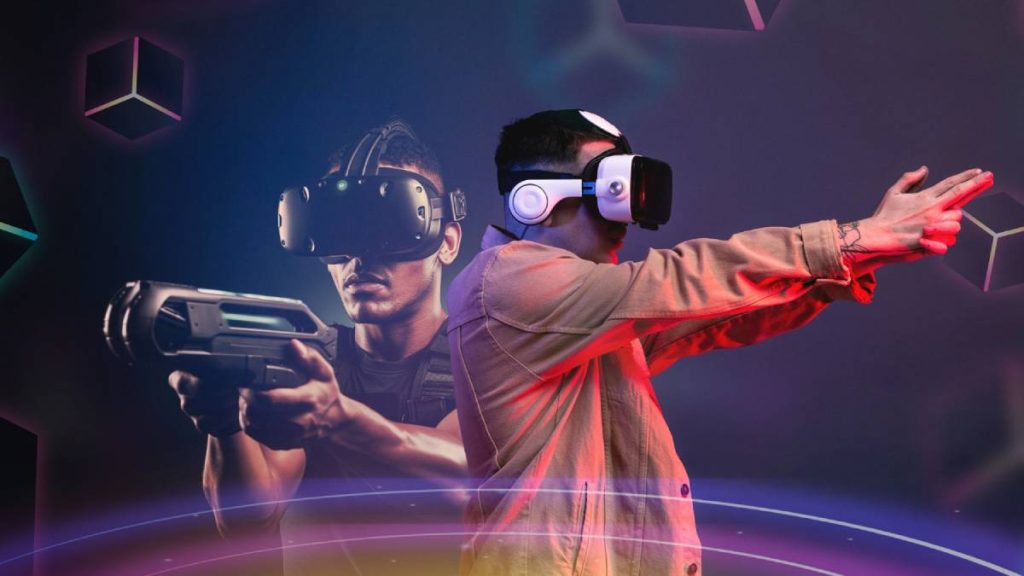How Virtual Reality is Transforming Games
Virtual reality (VR) is revolutionizing the world of games by providing immersive experiences that go beyond traditional screens. With VR, players can step directly into the worlds of their favorite games, creating unparalleled levels of interaction and engagement.
The Evolution of VR Games
The journey of VR in games started with basic simulations, but it has since evolved into a platform for highly sophisticated gaming experiences. Modern VR games feature realistic graphics, motion tracking, and lifelike environments that transport players into new dimensions of entertainment.
Top VR Games to Try Right Now
For gamers eager to explore the potential of VR, there are several standout games. Titles like Half-Life: Alyx and Beat Saber showcase the depth and creativity possible in VR games. These experiences highlight why VR is considered the future of gaming.
The Role of Hardware in VR Games
High-quality hardware is crucial for the success of VR games. Devices like the Oculus Quest 2 and PlayStation VR provide the tools needed to enjoy immersive gaming experiences. Without advancements in VR hardware, these groundbreaking games wouldn’t be possible.
How VR Games Enhance Social Interaction
VR games are not just about solo adventures—they also promote social interaction. Multiplayer VR games enable players to connect with others in shared virtual spaces, fostering a sense of community and teamwork in ways traditional games cannot.
Challenges in Developing VR Games
Creating VR games comes with unique challenges, such as motion sickness, hardware limitations, and high development costs. Despite these obstacles, developers continue to innovate, pushing the boundaries of what VR games can achieve.
The Impact of VR Games on the Gaming Industry
VR games are reshaping the gaming industry by introducing new possibilities for storytelling, gameplay mechanics, and audience engagement. These games are setting the stage for a more immersive and interactive future in gaming.
The Future of Virtual Reality Games
The future of VR games is bright, with emerging technologies like haptic feedback, eye tracking, and improved AI integration. These advancements will make VR games even more realistic and engaging, attracting a broader audience of gamers worldwide.
Conclusion
Virtual reality is transforming games into deeply immersive experiences, revolutionizing the way players interact with digital worlds. From groundbreaking hardware to innovative gameplay, VR games are shaping the future of the gaming industry. As technology continues to advance, the possibilities for VR in gaming are limitless, making it an exciting time to be a part of this evolution.
Frequently Asked Questions
- What is virtual reality gaming?
- It is a form of gaming that uses VR technology to create immersive, interactive experiences.
- How do VR games differ from traditional games?
- VR games place players directly into the game world, offering a more immersive experience.
- What hardware is needed for VR gaming?
- Devices like the Oculus Quest 2 and PlayStation VR are commonly used for VR gaming.
- Are there multiplayer VR games?
- Yes, many VR games offer multiplayer modes for social interaction.
- What challenges do developers face with VR games?
- Challenges include motion sickness, hardware limitations, and high production costs.
- What are some popular VR games?
- Titles like Half-Life: Alyx and Beat Saber are widely regarded as top VR games.
- Can VR games improve social interaction?
- Yes, multiplayer VR games foster teamwork and community in virtual spaces.
- How does VR impact the gaming industry?
- VR games are introducing new gameplay mechanics and redefining player engagement.
- What is the future of VR games?
- The future includes advancements in haptic feedback, AI integration, and more realistic experiences.
- Are VR games suitable for all ages?
- While many VR games are family-friendly, some have age restrictions based on content.



